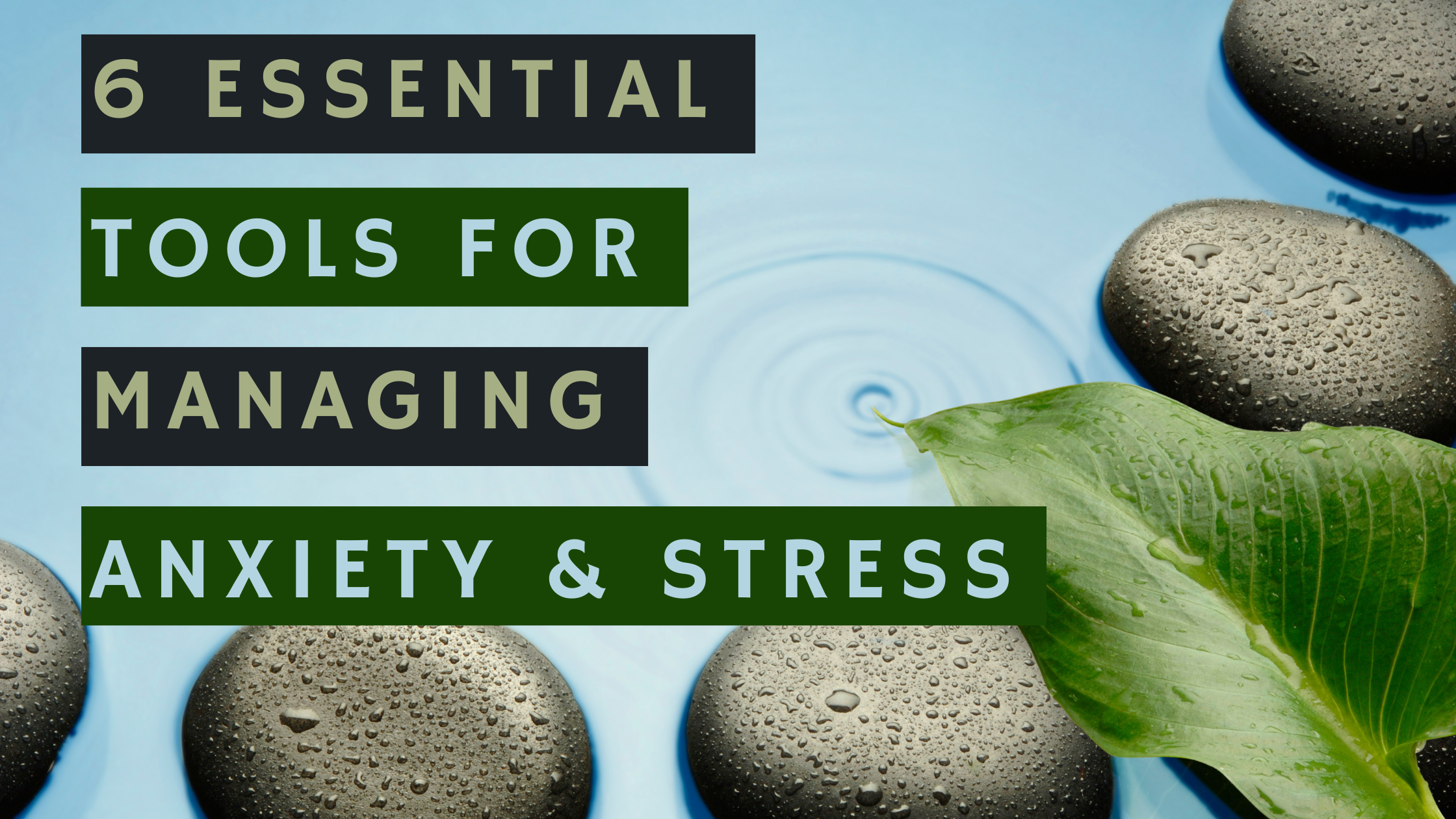
Life is a beautiful journey filled with ups and downs, and anxiety is a natural part of it. It’s essential to remember that experiencing manageable levels of anxiety is normal. However, when anxiety starts to interfere with your daily life, it’s time to explore strategies to help manage it effectively. In this article, I, a licensed therapist, will introduce you to six valuable tools that can assist you in reducing anxiety and stress. These tools are meant to be your companions in navigating life’s challenges with grace and resilience.
1. Deep Breathing, Mindfulness, and Progressive Muscle Relaxation:
Anxiety often brings with it a whirlwind of racing thoughts and physical tension. Deep breathing exercises, mindfulness techniques, and progressive muscle relaxation can be your anchors in the storm. Practice deep breathing to bring your focus to the present moment and reduce the grip of anxiety. Mindfulness allows you to observe your thoughts and feelings without judgment, promoting inner calm. Progressive muscle relaxation involves consciously tensing and then releasing different muscle groups to alleviate physical tension associated with anxiety.
You can find plenty of instructional resources online, including guided exercises, meditation apps, and relaxation podcasts. Experiment with these techniques to discover which resonates with you the most. Remember, consistency is key to reaping the full benefits. Here is one example of a deep breathing video that is available online.
2. Physical Activity & Movement:
Engaging in regular physical activity is a powerful antidote to anxiety. Exercise triggers the release of endorphins, which are natural mood enhancers. Just a 20-minute walk each day has been shown to reduce anxiety levels significantly. Additionally, practices like yoga, tai chi, and chi kung combine gentle movement with deep breathing, offering a holistic approach to anxiety reduction.
The key is to find a form of physical activity that you enjoy and can maintain as a regular part of your routine. This not only helps combat anxiety but also contributes to overall well-being.
3. Healthy Lifestyle:
Maintaining a healthy lifestyle is fundamental to managing anxiety. Ensure you prioritize a balanced diet rich in nutrients, get adequate sleep, and stay hydrated. These factors significantly impact your mental well-being. A nutritious diet provides your brain with the necessary fuel to function optimally, while quality sleep helps regulate mood and reduce stress. Hydration is often overlooked but is vital for maintaining mental clarity.
4. Social Support:
Human connection is a powerful tool against anxiety. Reach out to friends and family who provide a supportive environment where you can openly express your emotions. Sharing your concerns with others not only alleviates the burden but also offers different perspectives and valuable insights.
Consider joining support groups or engaging in activities that align with your interests to expand your social support network. Sometimes, just knowing that you’re not alone in your struggles can be immensely comforting.
5. Limiting Stimulants:
Caffeine, nicotine, and other stimulants can exacerbate anxiety symptoms. If you’ve ever felt your heart racing or your mind racing after a strong cup of coffee, you understand the impact of stimulants on anxiety. In my experience as a therapist, I’ve witnessed people make significant progress in managing their anxiety by eliminating or reducing stimulants from their daily routine.
If you’re struggling with anxiety, it’s worth experimenting with the reduction or elimination of these substances from your life. You might be surprised by the positive changes it brings.
6. Professional Help – Cognitive Behavioral Therapy (CBT):
Cognitive Behavioral Therapy (CBT) is a highly effective therapeutic approach for managing anxiety. It equips individuals with the tools to identify and challenge negative thought patterns that contribute to anxiety. Through CBT, you can learn to reframe your thoughts, develop coping strategies, and gradually regain control over your anxiety.
If your anxiety has reached a point where it’s interfering with your daily life, seeking help from a mental health professional, such as a therapist or psychiatrist, is a crucial step. They can tailor a CBT-based treatment plan to your specific needs, providing you with invaluable support on your journey to better mental health.
In conclusion, anxiety is a normal part of life, but it doesn’t have to overwhelm you. These six tools – deep breathing, mindfulness, progressive muscle relaxation, physical activity, a healthy lifestyle, social support, and professional help through CBT – are your allies in managing anxiety and stress effectively. Remember, the key is to experiment, find what works best for you, and cultivate these practices consistently. If you ever feel that your anxiety is too severe or chronic to handle alone, don’t hesitate to reach out to a mental health professional. Your well-being is worth the investment in self-care and professional support.
For a deeper dive into stress and anxiety, I invite you to listen to the Huberman Lab Podcast #10, “Tools for Managing Stress & Anxiety.” If you have any questions or are interested in working with me, please feel free to reach out at 559-736-8037. Your mental health matters, and there is help and support available to guide you toward a more peaceful and balanced life.
